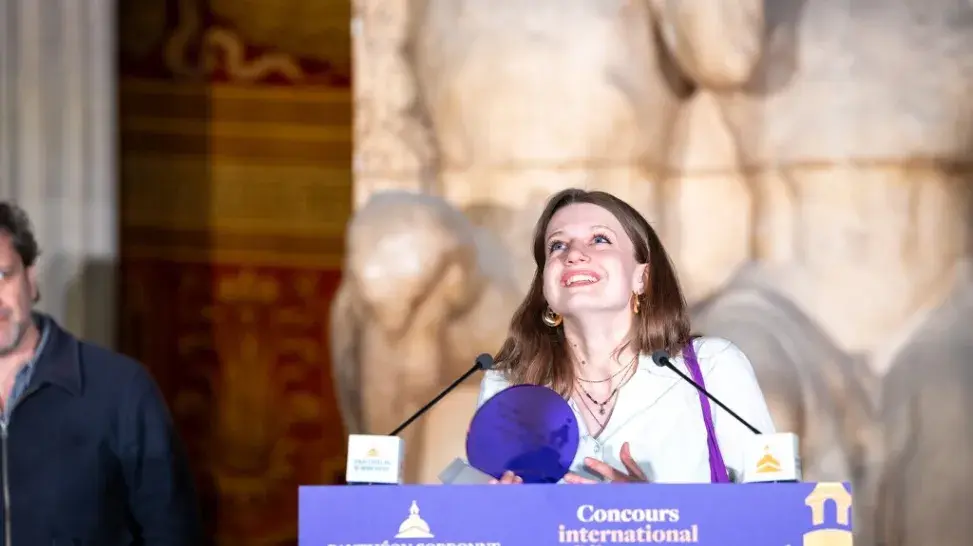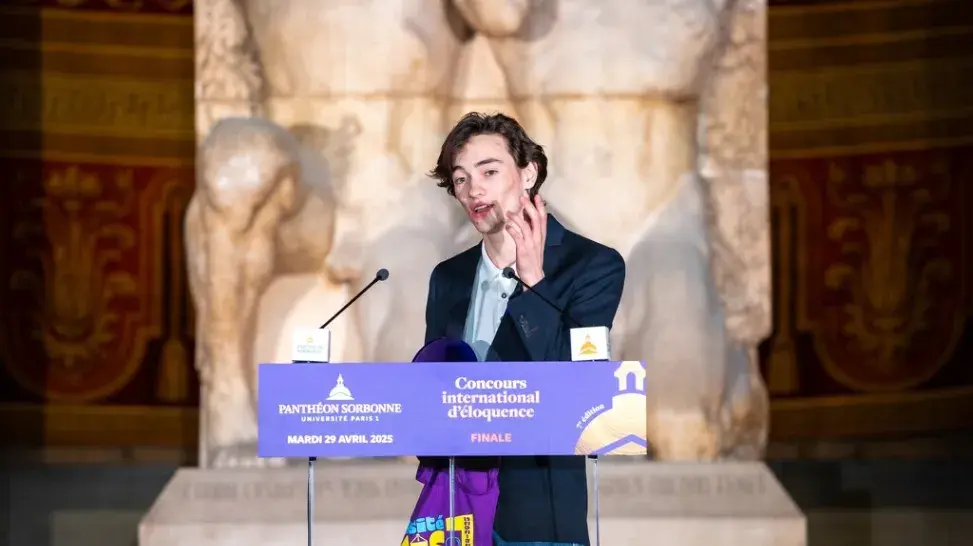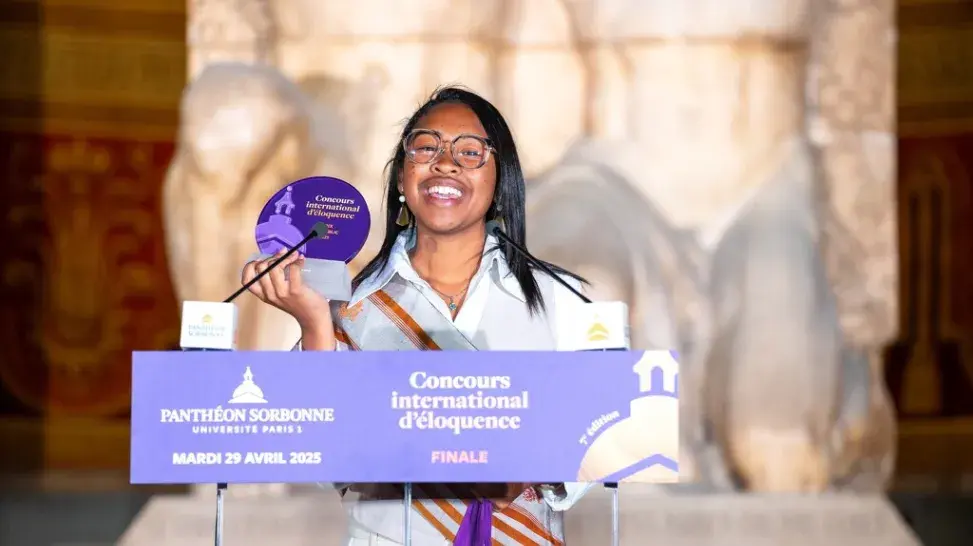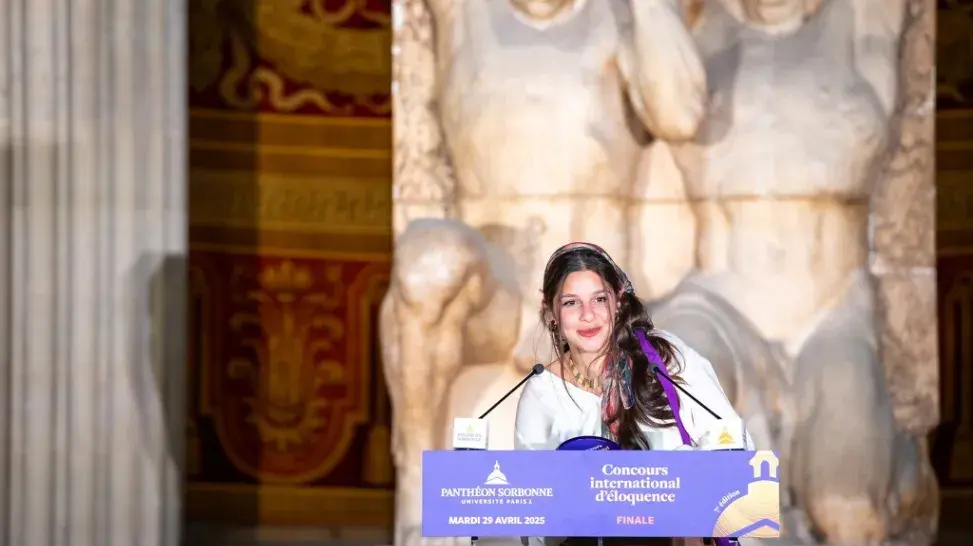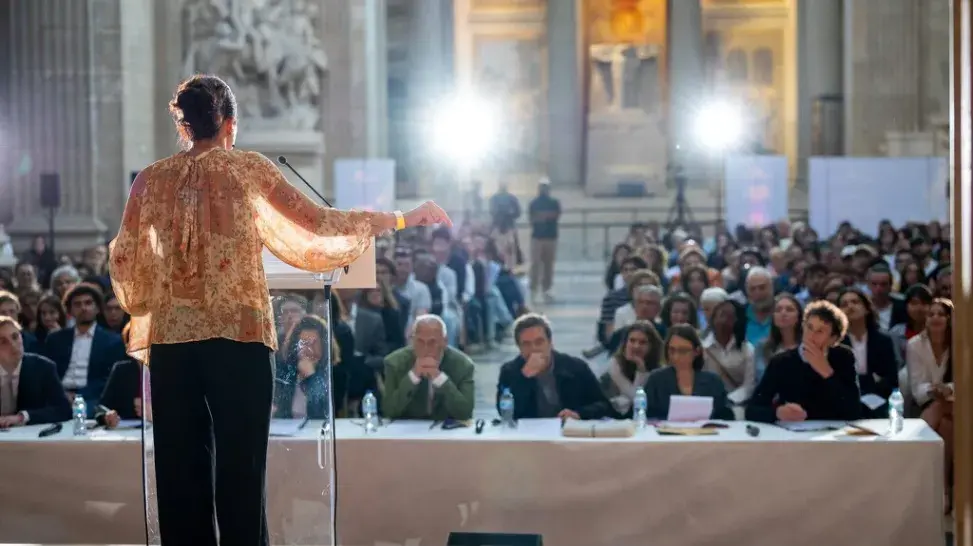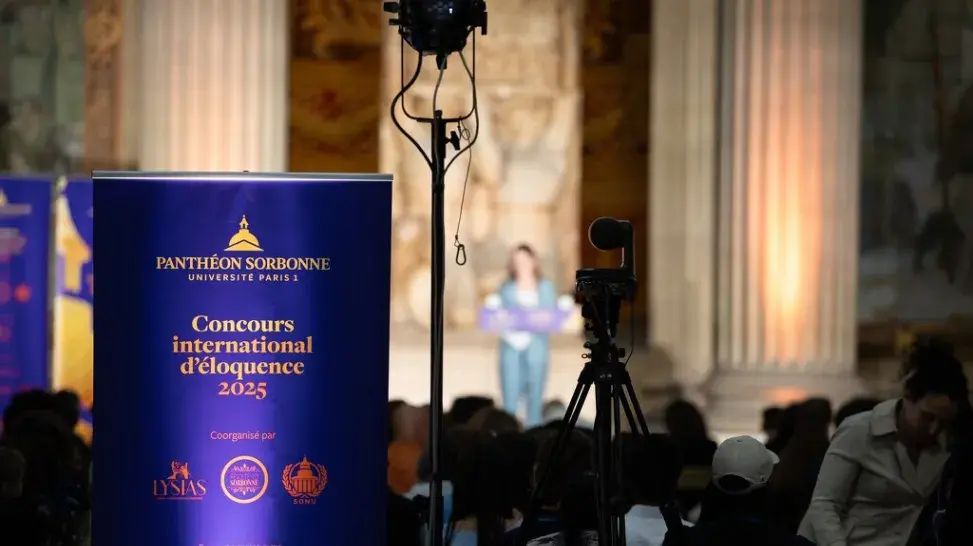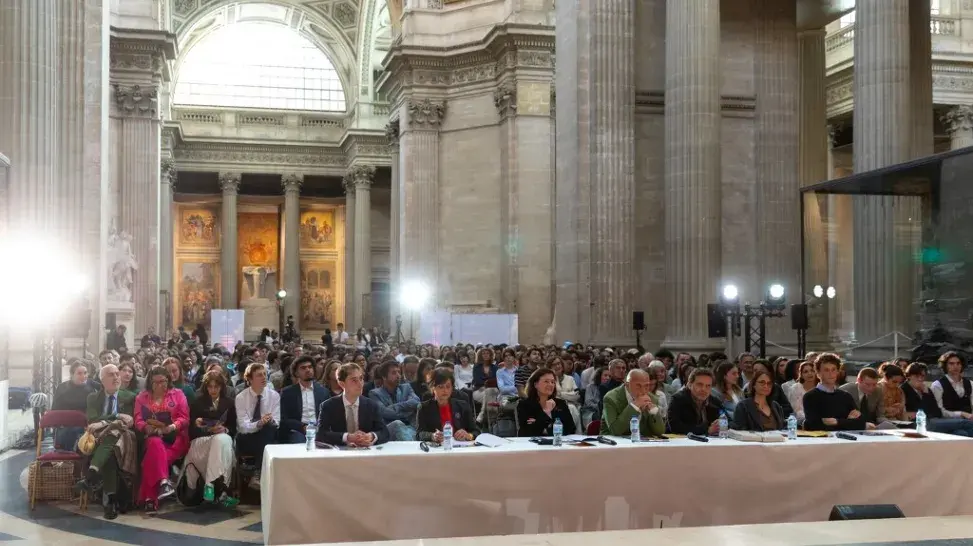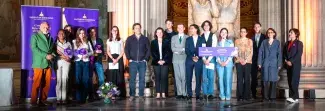
Top voices under the dome of the Panthéon
On 29 April 2025, the grand final of the Concours international d'éloquence de l'université Paris 1 Panthéon-Sorbonne brought together more than 4,500 spectators, present in the heart of the Panthéon or connected remotely. Eight finalists from a variety of academic backgrounds and from several countries reached the final stage of the competition after several weeks of preparation and two months of competition.
For this seventh edition, alongside University president Christine Neau-Leduc, the jury included actor and director Jonathan Zaccaï, the sponsor of this year's competition, writer Tahar Ben Jelloun, lawyer Marie Dosé, coordinator of international projects for the Agence universitaire de la francophonie (AUF), Cécile Auneau, the winner of the 2024 Grand Prix, Gabriel Vatel, and the President of the Lysias Paris 1 association, François Guérin.
Together, they had the delicate task of assessing the speeches and praises submitted by the finalists, with a new feature introduced this year: a question-and-answer session between the candidates and the jury, adding an extra level of rigour to the competition.
The excitement of the final moments
With an hour to go before the final, the intensity was palpable backstage. The finalists were polishing their praises, rehearsing their texts and fine-tuning the final details of their performances to win over the jury and the audience. Rotsinasandratra Lucas Hantamalala, AUF finalist from the University of Antananarivo (Madagascar) explains: ‘After taking part in the semi-final by duplex from Madagascar, being here in person changes everything. Being so close to the audience and the jury is an extra challenge, but it's also a chance to really embody my speech. At the same time, Priscille Bollaro, concentrating on her paradoxical praise of the eyebrow, is putting on her own show. ‘I've always found that the details in a speech are essential. The eyebrow, though seemingly insignificant, carries great power in communication. That's what I'm trying to highlight'.
Time for competition
Opening the final, Christine Neau-Leduc, President of the University, stressed the essential role of eloquence in the university context. ‘We are here to celebrate the power of words and the art of oratory. This event is a high point in the life of the university, an interlude of universalism where students are united, once again, by a common passion: the French language. You are the beating heart of the university’, she declared. This was followed by the duels, during which the candidates were able to compare their arguments on set topics such as Can you shine without extinguishing others? or Can you lose with honour? Each duel demonstrated the ability of the finalists to forcefully defend opposing positions. After these confrontations, the evening continued with the praise.
Prize-winners recognised for their eloquence
After more than thirty minutes of deliberation in the crypt of the Panthéon, the jury selected the winners, highlighting the talents of the participants. Jury member Tahar Ben Jelloun noted that ‘each speech was a demonstration of thoughtfulness and mastery’. The Revelation 2025 prize went to Marianne Saghbini, a student at the University of Beirut, who said: ‘This competition has enabled me to develop my voice and perfect my art'. The People's Choice Award went to Rotsinasandratra Lucas Hantamalala: ‘This prize recognises the work I have put into this competition and into public speaking’. Clément Nguyen Ngoc, winner of the AUF Inspiration Award, added: ‘This prize represents the conviction that eloquence can inspire and open up horizons.’ Graziella Suchey, winner of the Grand Prix Paris 1 Panthéon-Sorbonne, concluded: ‘This victory encourages me to continue defending my ideas.
‘Eloquence is not just about words, but about commitment and the emotion it conveys’, said lawyer Marie Dosé to close the evening. With more than a hundred candidates on the starting line and more than 8,500 spectators from the first round to the grand final, the seventh edition of the Concours international d'éloquence brought the Latin Quarter to its feet, from the amphitheatres of the Sorbonne to the columns of the Panthéon.
To continue to bring the art of public speaking to life and to help you get to know the candidates better, a podcast will shortly be available on all platforms. Four episodes will cover the highlights of this year's competition. See you in September...
